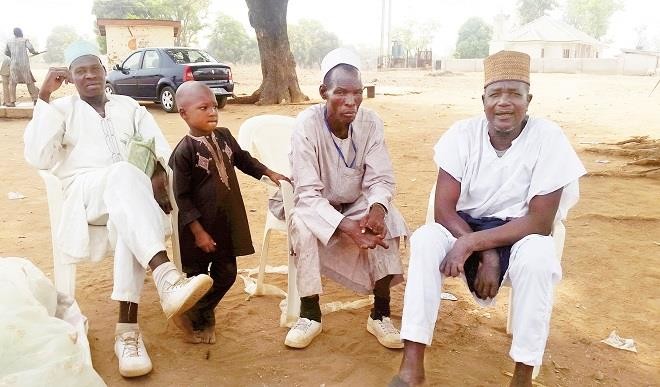
As a teen, Jibrin Ibrahim had dreamt of having a family, a good job and a comfortable life.
Now 73 years old, he is still single, lives at the Alheri Lepers’ Home in Yangoji maintained by the Federal Capital Territory Administration on the outskirts of Abuja along the Abuja-Lokoja Expressway, without any child and maintains a public toilet to earn a living.
Jibrin, who is afflicted with leprosy, said the disease had taken everything off him, including his dream as a teen.
“I did not marry because of my condition because marrying someone could mean putting her in pains,” he said, adding that he had to remain single and only wished he could turn back the hands of time.
Many inmates of the home said they had lofty dreams earlier in life but are now confined to a community that seems to take little notice of them. Most of them stay in buildings with leaking roofs due to years of neglect while children in some large families sleep in kitchens. They take turns in long queues to fetch water from the lone mechanized borehole at the home and still struggle to ensure that their children also acquire western education.
Jibrin’s story exemplifies those of more than 100 other inmates at the home. Evidently deprived, they mostly live on handouts or donations while some manage to maintain small farms to eke a living.
While Jibrin manages a public toilet nearby, Mohammed Salu cuts timber. Some of the men had their legs amputated while several others with stump fingers and toes still do these jobs in their condition. Most of them wear socks or other kits to conceal their condition.
Mohammed, while showing some injuries on his stump fingers, said he bore great pains daily using an axe or chain saw to split wood but had no choice as he had to provide for his family.
The several scars on both hands tell about the over five years he had spent splitting firewood and selling to locals. A tired-looking Mohammed, with twisted eyes and tattered clothes, said he woke up daily to face new challenges with his daily earning barely enough for a decent meal.
He said he gets below N1,000 to split more than 50 pieces of wood daily, and with the money, buys grains and uses the balance for other household needs. He wakes up daily looking forward to doing more wood splitting, just as he contends with pains from the previous day’s work.
The community head, Ali Isah, said the lepers were used to the pains which he noted, are not only physical but also psychological. He said the lepers seemed not desirable in the society, as evidenced by consistent government neglect.
While stressing that it was not their desire to be in such condition, he decried the community’s apathy, as it discouraged some to strive for better living.
“People always discriminate against us, in the market, public transport and other places,” he said, adding that many at the home had been cured of the disease but the scars always reminded them of their past.
Isah, whose hands were partly plastered, said he sustained injuries while farming. He said most of the lepers engaged in farming in order to make a living. He expressed concern over his children’s welfare.
Isah said he had hoped to be a big farmer while growing up in Sokoto, but now engages in farming to live. He said the lepers could not be very productive in farming or other jobs due to their stumped fingers and toes, yet nobody seems ready to care. Before Jibrin started working at the public toilet, he was a farmer but stopped when he could no longer bear the pains while aging. He gets about N400 daily from his public toilet job, but on Wednesdays, he gets more money because of greater use by people from the local market near the toilet.
He said since the lepers were moved to Yangoji from Durumi, things took a new turn as they were left to fend for themselves. He said the change in government had also affected them. According to Jibrin, when former president, Chief Olusegun Obasanjo left government, the N6, 000 monthly stipend he used to collect while others took N4, 000 stopped, and they now receive nothing, just as government officials seldom visit the home, except on very important cases, “And they usually come empty handed.”
To stop the situation from deteriorating, most of them have resorted to farming on a sparse land nearby. This, Jibrin said, adds more damage to their already stumped fingers and toes. He said he usually buys pain killers more often than he buys household items to treat the excruciating pains after each round of farm work.
He said the lepers had resigned to fate as no foreseeable help seemed imminent. He said even the hospital at the home is understaffed with frequent shortage of drugs. The health facility according to him is managed by a nurse while residents are forced to go to other areas to purchase prescribed drugs. Another inmate of the home, Isah, said government should make land available for them to enable them increase farming activities and reduce poverty. He also appealed to government to renovate the home as the rains approach and take their general welfare more seriously.

 Join Daily Trust WhatsApp Community For Quick Access To News and Happenings Around You.
Join Daily Trust WhatsApp Community For Quick Access To News and Happenings Around You.

